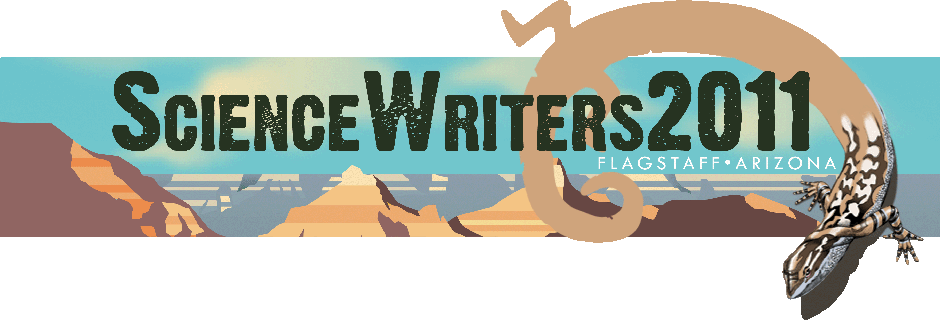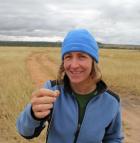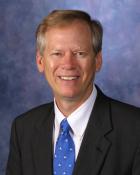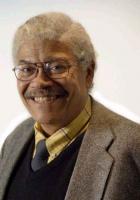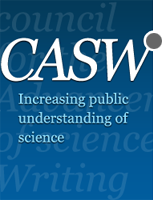Speakers
David Harris
Position/Organization:
Independent science communication designer
David Harris is a science communication designer, who solves clients science communication needs by helping design systems, processes, and publications. Among his roles he is a science writer and editor, PIO, social media consultant, designer and consults on random stuff. He has worked internationally in radio, television, print, and online. Most recently he was the founding editor-in-chief of symmetry magazine, an international particle physics magazine, and deputy communications director at the SLAC National Accelerator Laboratory at Stanford University.
Speaking:
-
Saturday, October 15th, 1:30 pm - 3:00 pm
Organizing:
-
Friday, October 14th, 7:00 pm - 9:00 pm
Moderating:
-
Laura Helmuth
Position/Organization:
Senior Editor, Smithsonian Magazine
Speaking:
-
Saturday, October 15th, 1:30 pm - 3:00 pm
-
Earle Holland
Position/Organization:
Assistant Vice President for Research Communications, Ohio State University
Moderating:
John Jonides, Ph.D.
Position/Organization:
Daniel J. Weintraub Professor of Psychology and Neuroscience; co-director of the Functional Magnetic Resonance Imaging Laboratory, University of Michigan
John Jonides has focused his research career on understanding working memory and higher mental functioning. That has included work to track the storage of information in working memory, and to determine how that information can be manipulated. When the weather in Michigan allows it, he jogs and plays golf and tennis.
Speaking:
-
Sunday, October 16th, 4:15 pm - 5:15 pm
-
Jennifer Kahn
Position/Organization:
Lecturer, Magazine Program, UC Berkeley Graduate School of Journalism; Feature Writer, The New Yorker, Wired, National Geographic, and Outside magazine
Jennifer Kahn has been a contributing editor at Wired magazine since 2003, and a feature writer for The New Yorker, National Geographic, Outside, Mother Jones, and the New York Times, among others. Her work has been selected for the Best American Science Writing series four times in the past seven years, most recently for "A Cloud of Smoke," her New Yorker piece about a policeman whose death four years after 9/11 was not what it seemed. She is also featured in the anthology Best American Sports Writing 2010.
Speaking:
-
Saturday, October 15th, 1:30 pm - 3:00 pm
-
Paul Keim, Ph.D.
Position/Organization:
The E. Raymond and Ruth Cowden Endowed Chair in Microbiology, Regents Professor of Biology and Professor and Director of the Pathogen Genomics Division, Northern Arizona University and The Translational Genomics Research Institute
Paul Keim has spent much of his career in close proximity to anthrax spores, and the rest of it meddling with E. coli, Salmonella and plague. He was heavily involved in the investigation of the 2001 anthrax letters, and he is a leader in the use of genomic analysis to identify and analyze bacterial pathogens.
Speaking:
-
Sunday, October 16th, 8:00 am - 10:00 am
-
Rob Knight, Ph.D.
Position/Organization:
Associate professor of chemistry and biochemistry, University of Colorado, Boulder
Rob Knight got his Ph.D. 10 years ago in ecology and evolutionary biology and quickly became involved in the study of bacterial communities on and in the human body. In addition to pursuing his basic research, he is working with Jeffrey I. Gordon at Washington University to set up a translational medicine pipeline in Malawi and Bangladesh-with the help of the Gates Foundation-to study microbiomes related to such diseases of malnutrition as kwashiorkor and marasmus. The goal is to treat these illnesses by restoring altered microbial communities.
Speaking:
-
Sunday, October 16th, 10:15 am - 11:15 am
-
David Kroodsma
Position/Organization:
Data Journalist, Climate Central
Speaking:
-
Saturday, October 15th, 10:45 am - 12:15 pm
-
Kurt Lancaster
Position/Organization:
Associate Professor, Digital Media, NAU; Author, DSLR Cinema: Crafting the Film Look with Video
Speaking:
-
Friday, October 14th, 9:00 am - 5:00 pm
-
Warren Leary
Position/Organization:
Freelance; Retired Science Correspondent, The New York Times
Warren E. Leary is a retired science correspondent for The New York Times based in Washington, D.C. A science writer for more than 35 years, he is a graduate of the University of Nebraska and received an M.S. degree from the Graduate School of Journalism at Columbia University.
Speaking:
-
Saturday, October 15th, 3:30 pm - 5:00 pm
-
